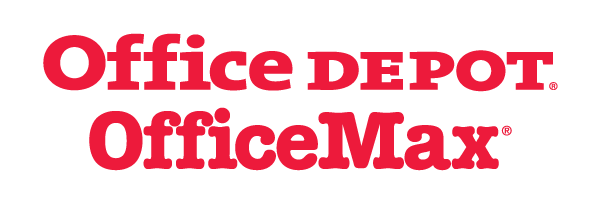 |
| Archive | Subscribe | Printer Friendly | Send to a Friend | www.beautyschools.org |
|
What's Hot
Ready to reopen? Ready for when your state approves, AACS has created a Reopening Guide to help your schools and organization proceed with protocols to ensure the safety and health of your staff, instructors, students, and community. In addition to resources, it also includes a state-by-state list of reopening policies. Please click on this link to find out more. The CDC has also released new guidelines to reopening public spaces, including schools. Check out this link for more information.
Make sure to check in on each other, and make sure we give ourselves the chance to reflect on our mental health. The Centers for Disease Control has joined the National Action Alliance for Suicide Prevention for the launch of the Mental Health & Suicide Prevention National Response to COVID-19. We are stronger together. AACS is here for you with a comprehensive coronavirus resource page that will be updated as new information comes in. Click here for updates from the Centers for Disease Control, World Health Organization, Small Business Administration, U.S. Department of Education, accreditors, distance learning educators and more. Member Benefits
 Preparing to reopen your school? Office Depot – OfficeMax member can help In addition to safety and health protocols, additional supplies will likely be needed to protect your instructors, staff and students as the learning continues. For a limited time, for AACS members only, cloth masks and face shields are available (supplies are limited).
Show your educators how much they mean to you and your students by ordering gift baskets during Teacher Appreciation Week. They’re pre-packaged and ready to send.
Baskets are available to order through the AACS Office Depot/Office Max portal. Both baskets and masks are available by calling Nicole Gutierrez at: (855) 337-6811 ext. 12673 or Sara Haltom at (855) 337-6811 ext. 12872. Whether working from home or back in your offices, OfficeMax is here to provide AACS members special benefits. Businesses using the Office Depot discount program see significant savings. Take advantage of the program today and you could save thousands of dollars per year! To learn more, click here Especially during this time of the coronavirus pandemic, we have been hosting webinars for members to provide the latest information to help you continue to serve your students and manage your business. If you missed a webinar, recordings are available to members only. Webinars to date are: Navigating Distance Education If you would like the recording, email info@beautyschools.org. More will be available soon. Monitor your inbox for the latest information. Additional FAQs are available regarding:  Prescription RX card benefit GRC News
Federal Legislative Weekly Update
Congress May 4, 2020 – The Senate returned to Washington on Monday with a long to-do list as the coronavirus continues to impact the economy — but most of the action this week will not directly address the pandemic. “The Senate is back in session because we have important work to do for the nation,” Senate Majority Leader Mitch McConnell (R-Ky.) said Monday as the chamber gaveled in for the first time in five weeks. Republican-led committees are scheduled to hold hearings for high-level presidential nominees including for the nation’s top intelligence post, while GOP leaders aim for votes later this month on key national security tools that remain dormant. The House is not planning to come back until next week, but an Appropriations subcommittee will still hold an in-person hearing Wednesday on coronavirus response. Top House Republicans want the Education Department to turn over records of its investigations into U.S. colleges and universities, as part of a joint inquiry into the Chinese government’s involvement in the American higher education system. Monday’s public rebuke from seven ranking House committee members is the latest in a string of controversies that’s entangled the country’s most prominent universities and dovetailed with hawkish White House foreign policy toward China. The Education Department subpoenaed the University of Texas in late April for records on the school’s links with Chinese entities such as the Wuhan Institute of Virology and Huawei Technologies. "China has strategically invested in U.S. academia to attempt to steal confidential information and technology from U.S. companies, and even the U.S. government,” Republicans said Monday in a letter to Education Secretary Betsy DeVos. House Education and Labor Democrats said Monday that Education Secretary Betsy DeVos’ changes to the borrower defense program application are unnecessary and may deter applicants. The lawmakers sent a comment letter to the Education Department on Monday, the last day of the comment period on the “Borrower Defense to Loan Repayment Universal Form,” according to the Federal Register. Changes the Education Department introduced could be used to replace the borrower defense form that expired on Dec. 31, 2019. The borrower defense program allows a pathway for defrauded student loan borrowers to have their debts forgiven. “Some of the proposed elements could be helpful to borrowers, such as providing examples of institutional misconduct that could lead to discharge, and including additional types of claims that the Department may consider, such as instances where the college misrepresented itself to third parties including states, accreditors, or the Department,” lawmakers wrote. April 29, 2020 – Speaker Nancy Pelosi on Wednesday appointed seven Democratic members to a newly created House panel meant to police the Trump administration’s coronavirus response efforts. The appointments are expected to ignite a wave of congressional action to spotlight President Donald Trump’s handling of the multitrillion-dollar pandemic relief packages meant to confront the illness’ devastating toll on American life. "We must make sure that the historic investment of taxpayer dollars made in the CARES Act is being used wisely and efficiently to help those in need, not be exploited by profiteers and price-gougers," Pelosi said in a "dear colleague" letter.
U.S. Department of Education May 1, 2020 – Education Secretary Betsy DeVos is continuing to garnish the wages of federal student loan borrowers who fall behind on payments even though Congress suspended the practice in the economic rescue package, according to a new proposed class action lawsuit. An upstate New York woman who works as a home health aide for less than $13 an hour claimed in the lawsuit, filed late Thursday, that the federal government seized more than $70 from her paycheck as recently as last week — nearly a full month after President Donald Trump signed the CARES Act, H.R. 748 (116), into law. She is suing on behalf of about 285,000 borrowers whose wages are being garnished, according to the lawsuit. April 30, 2020 – U.S. Secretary of Education Betsy DeVos announced that nearly $1.4 billion in additional funding will be directed to Minority Serving Institutions (MSIs), including Historically Black Colleges and Universities (HBCUs) and Tribally Controlled Colleges and Universities (TCCUs), as well as institutions serving low-income students to help ensure learning continues during the coronavirus national emergency. This funding is part of the Higher Education Emergency Relief (HEER) Fund authorized by the Coronavirus Aid, Relief, and Economic Security (CARES) Act.
H.R.6657 – To rescind certain appropriations made in the Coronavirus Aid, Relief, and Economic Security Act, and for other purposes. H.R.6651 – To amend the higher education emergency relief fund under the CARES Act to restrict eligibility to institutions of higher education that owned endowment assets whose average monthly value was equal to or less than $10,000,000,000 in 2019, unless the institution expends additional institutional funds on higher education emergency relief, and for other purposes. H.R.6646 – To provide State and local workforce and career and technical education systems with support to respond to the COVID-19 national emergency. S.3589 – A bill to amend the higher education emergency relief fund under the CARES Act to restrict eligibility to institutions of higher education that owned endowment assets whose average monthly value was equal to or less than $10,000,000,000 in 2019, unless the institution expends additional institutional funds on higher education emergency relief.
State Update This week’s report will review the unfinished 2020 state bills that may be considered this Spring and Summer. Unfinished 2020 State Legislation Arizona HB 2740 The enrolled House bill would require the newly constituted barbering and cosmetology board to “determine whether a reduction of instruction hours that are required for current licenses is necessary and how a reduction of instruction hours might affect reciprocity with other states.” To this end, the amendment authorizes up to $750,000 from the barbering and cosmetology fund to prepare a report and recommendations to be submitted to the Governor and legislature on or before November 1, 2022. Status: Passed by the House. Referred to the Senate Commerce and Rules Committees. Iowa SF 2365 Status: Introduced, placed on calendar, under Rule 28. Michigan HB 5438 Status: In the House Regulatory Reform Committee Minnesota HF 3202/SF 2898 Status: HF 3202 was reported from the House Government Operations Committee and is currently in the House State Government Finance Division. SF 2898 was reported from the Senate State Government Finance and Policy and Elections Committee and is currently in the Senate Finance Committee. Ohio HB 399
Status: In the House State and Local Government Committee Oklahoma SB 1166 Status: Passed by the Senate 35 to 11. Sent to the House. Rhode Island H7484 Status: House Corporations Committee hearing held. The Committee recommended in March that the bill be retained in the Committee for further study. South Carolina H 4205 Status: Reported from House Committee. Floor consideration pending. Pending 2020 Bills Unlikely to Pass Illinois HB 5558 Tennessee SB 1914/HB 1945 If you are interested in reviewing the bill text of the measures listed above or to track bills from your state, please click here to visit AACS’ Bill Tracking Portal. Please do not hesitate to contact Brian Newman at bnewman@abingdonstrategies.com or by phone at 202-491-5254 with comments or questions. State Reopening Guidance A list of state reopening guidance for salons and other personal care businesses can be found here. While over 15 states were listed at press time in this AACS State Relations report, additional guidance will be added as states finalize and post their reopening plans. COVID-19 Resources AACS Coronavirus Resource Center State and Local Government Responses to Covid-19 National Governors Association Coronavirus Updates COVID-19 State Legislation – National Conference of State Legislatures |












